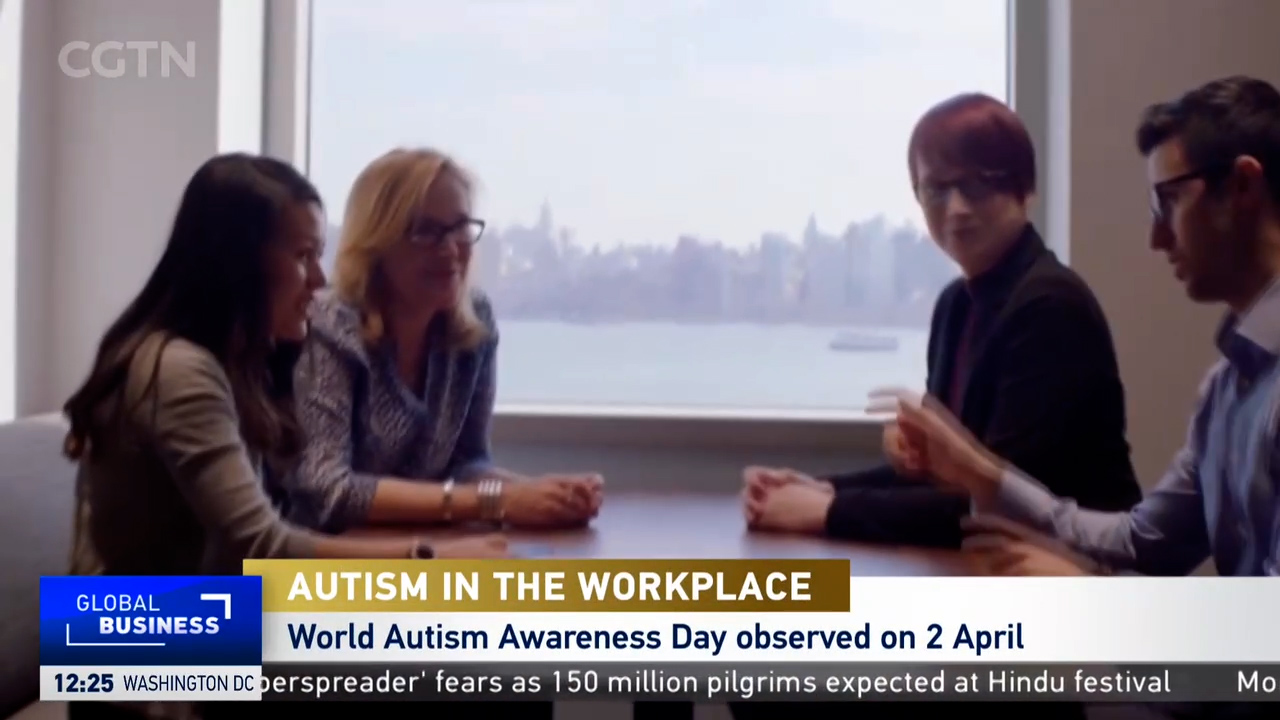03:36

While the COVID-19 pandemic has thrown the international economy into the worst recession since the 1930s, leading to job losses for hundreds of millions, remote working and the use of new technologies have enabled individuals on the autism spectrum to thrive in an environment that's not the traditional workplace.
The United Nations estimates that 80 percent of adults with autism are unemployed, as discriminatory hiring practices and workplace environments often present impossible challenges for neurodivergent people to overcome.
The numbers are quite shocking compared to unemployment rates for all people with disabilities (about 69 percent) and for the general population (around 43 percent).
READ MORE
UK's gaming industry booming post-Brexit
Where in Europe is same-sex marriage legal?
The Agenda: European vaccine procurement
Job interviews and traditional human resources screening processes can be extremely challenging to neurodivergent and autistic people, while adjusting to a new workplace might require time and support.
However, it's not just the overlooked applicants that could be missing out. The same characteristics that can make individuals with autism exceptionally successful in the workplace – extreme focus, accuracy, innovative thinking – often bar them from entering the workforce in the first place.

The Empire State Building is lit in blue in honor of the 14th World Autism Awareness Day on April 2, 2021 in New York City. /Noam Galai/Getty Images for Autism Speaks/AFP
The Empire State Building is lit in blue in honor of the 14th World Autism Awareness Day on April 2, 2021 in New York City. /Noam Galai/Getty Images for Autism Speaks/AFP
"As an employer and an ally of neuro-divergent individuals, I think there's a gap in understanding, awareness and application and that results in this amazing untapped workforce that is available, frankly, across the industry sector," says Hiren Shukla, founder of the Neuro-Diverse Centers of Excellence at Ernst & Young (EY) Global, one of the world's largest professional services networks.
Thankfully, this "untapped" resource may now become more appreciated thanks to the exceptional circumstances of the past year. Despite exacerbating inequalities in wealth distribution, access to healthcare and political inclusions for people with autism, the COVID-19 pandemic has also revolutionized the way we think about the workplace – meaning that companies and employers have now an opportunity to rebuild it in a more inclusive fashion.
"Our experience at EY has been that moving to a remote environment has actually opened up the job market, particularly for autistic individuals and those that are neurodivergent at large, because it's allowed us to now access them where they are as opposed to just where the jobs are," explains Shukla.
"The other beautiful part about this is that the neurodivergent team members that we are lucky enough to hire are extremely comfortable with technology. And therefore using the platforms as we're using today, Zoom and such, really allows us to tap into this diverse workforce and not have to add increased stress, anxiety, office stimuli or commute to the office."

The Porte de Bourgogne gate in Bordeaux, western France was illuminated in blue for World Autism Awareness Day. /Mehdi Fedouach/AFP
The Porte de Bourgogne gate in Bordeaux, western France was illuminated in blue for World Autism Awareness Day. /Mehdi Fedouach/AFP
Shukla acknowledges that fostering acceptance of neurodivergent people in the workplace requires a "paradigm shift in perception from the deficit-based model [...] to a strength-based model," looking at the particular skills of individuals with autism and how those can contribute to the workplace.
"We find that this power of thinking differently really brings this multidimensional element that organizations are looking for, especially today, to be more agile and resilient," says Shukla.
This means that companies will be hiring neurodivergent people as a beneficial profit-related decision rather than as an act of corporate social responsibility.
Cover image: AP Photo/Michel Euler

